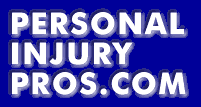Auto and Truck Accidents
The American Red Cross estimates that auto accidents account for 500,000 deaths and 15 million injuries worldwide each year. With these numbers, it’s no wonder that motor vehicle accidents are the most common source of personal injury claims.
In a motor vehicle
claim, the burden of proof rests on the plaintiff. He or she must prove
that the defendant driver was negligent and caused the accident. The plaintiff
must also show that he or she suffered real injury from the accident.
To prove negligence, the law uses the “reasonable person” standard. A
reasonable person is someone who uses due care and takes reasonable steps
to avoid creating a situation where an accident could occur.
Liability Of
The Vehicle Owner
In Pennsylvania,
the owner of a car involved
in an accident may be held liable under some circumstances. “Vicarious
responsibility” can hold owners of a vehicle involved in an accident responsible
for the negligence of the operator if the driver is on an errand for the
owner. In this case the owner (many times a corporation) may also be at
fault for the accident. The owner may also be independently negligent,
particularly if the vehicle is leased or loaned to a person who should
not be driving. Similarly, businesses are sometimes held responsible for
an accident that occurs while an employee is driving while on business.
Whether or not
you are at fault for an accident affects your ability to recover damages,
your liability for damages of others and your insurance rates. Having
your own automobile insurance coverage protects you from claims of others
if you are at fault, and can provide limited coverage for your own injuries.
Consulting a lawyer after an accident can help you sort this out, even
if you do not pursue a claim.
In cases where
damages exceed insurance coverage, a lawyer may be able to help drivers
uncover other causes for an accident including highway design defects,
automobile design, reckless drivers or even product defects such as tire
failures.
Insurance:
How Can I Protect Myself?
First of all,
have adequate liability insurance coverage to protect you if you are sued by
another driver. Talk to your insurance agent to make sure you have adequate
limits of coverage.
No-fault
insurance guarantees the payment of certain expenses by your own insurance company for certain
damages and losses. This may include payment for your medical bills
and wage losses up to the coverage limits that you select.
Pennsylvania
requires motorists to have auto insurance or to show proof of their
financial ability to pay another person if an accident occurs. However,
one-half to two-thirds of all drivers are underinsured or uninsured
motorists. What can you do to protect yourself from these motorists?
Consider
buying uninsured motorist coverage. Insurance companies are required by
law to offer this coverage when you purchase insurance. This coverage
pays you or any other person covered under your policy for bodily injuries
caused by either a hit-and-run driver or an uninsured driver. Uninsured
motorist insurance also may cover any passengers in your car. You should
also consider purchasing underinsured motorist coverage. This coverage
pays you for any damages caused by a motorist who doesn’t have enough
liability insurance to cover your damages.
Many people don’t
realize that their own right to bring a claim against another driver responsible
for their personal injuries is governed by the selection of their tort
option on their insurance policy. If you select the limited tort option,
for which you will pay a lesser premium, your right to bring a claim for
personal injuries may be limited or restricted to situations where you are
seriously injured. There are limited exceptions. If you select the full
tort option, you are able to bring a claim for any injury that you may
suffer, even if not serious. Many long-lasting, debilitating, painful
injuries may not qualify as serious. Therefore it is important to consider
this issue when you purchase insurance. Select the full tort option
if possible. Even if you have the limited tort option, you still may have
a claim, but only a consultation with a lawyer will tell you.
Insurance protects you in the event of an accident. Your best bet for avoiding an accident is to drive cautiously. Consider factors such as lighting (can drivers see you?), erratic driving by other motorists (allow extra space between cars) and weather and road conditions (slow down in rainy or icy conditions), and adjust your driving accordingly.
Even if you drive
with care you still may be involved in an accident. If this happens, get as
much information as you can from the other driver and call your insurance
company and your lawyer as soon as possible.
Truck Accidents
Comparative Negligence: A Common Defense
To dispute your
claim, defense lawyers may try to prove that you contributed to causing
the accident. This is known as “comparative negligence.” Comparative negligence
reduces the amount of damages you may recover based on the percentage
of fault assigned to you. Even if you are at fault for an accident, comparative
negligence laws may enable you to recover some damages. Under Pennsylvania
law, if you are negligent, your damages may be reduced by the percentage
of negligence assigned to you. If comparative negligence can be proven,
you may not be able to collect any damages if your negligence exceeds
the negligence of the defendant.
If your claim
is successful you may be able to recover damages for pain and suffering, loss
of past earnings, future loss of earnings, current and future medical
expenses, loss of life’s pleasures, any restrictions on your usual activities,
pursuits and pleasures and loss of consortium (loss of comfort, loss of
companionship, damage caused to marital relationship).
For a free consultation call
or e-mail us today at
dan@personalinjurypros.com
CASE EXAMPLE
What
to do if
you are in an
Auto Accident
© 2011-2022. All Rights Reserved.
